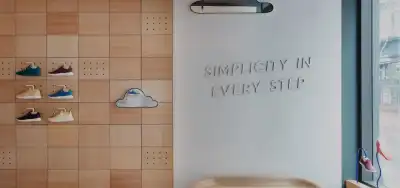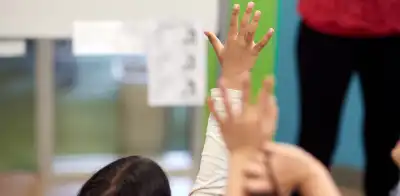Summary
By providing students with a personally curated and intercontinental educational experience, Minerva Schools at KGI flips the script on the traditional university. Learn here how OKRs helped them define a common language among a globally dispersed team and discover which metrics best correlated to their student’s future successes.
Do you remember college? Four-years of your life anchored around a grassy campus. Hour-long lectures in halls with hundreds of other students and all-night cram sessions at the library. If you visit any traditional university today, not much has changed. And that’s a problem.
The modern university model may have been adequate in preparing students to enter the workforce 50 years ago. But so much has changed since then. Today’s students are entering an ultra-competitive global job market where the ability to solve complex problems is fundamental.
Most graduates themselves don’t feel up to the task. According to a 2018 McGraw-Hill Education survey, only 4 in 10 college grads believed they were very or extremely prepared for their future careers.
That’s why Minerva Schools at KGI is redefining what a university can be in the 21st century. Founder Ben Nelson and Dean Stephen M. Kosslyn, Ph.D. designed Minerva’s curriculum to develop students’ ability to think critically and creatively, to communicate effectively and to work well with others. The goal is to prepare students for any career — even those that don’t exist yet.
Beyond the academics is Mike Wang and the Student Experience team, who serve as a bridge between what students are learning in the academic classroom and their journey into the workforce.
The “why” is simple: “If you want to solve the world’s most complex problems, you have to live and immerse in it,” says Wang.
So instead of spending four years in a gated campus, students live in and get to explore seven of the world’s most bustling metropolitan centers. Minerva’s classroom is any place with a strong WiFi signal. As students move from San Francisco, Seoul, Hyderabad, Berlin, Buenos Aires, or London to Taipei, classes are conducted through an online live-video platform, called the Forum, that allows teachers to teach using active learning pedagogies, track their students’ progress, and provide personalized feedback efficiently.
Meanwhile, Wang and his team integrate students in each city through a combination of curated experiences, community (“civic”) projects, and internships.
Minerva opened its doors to students in 2014. Every program, academic or experiential, is intentionally designed with the school’s mission in mind: nurturing critical wisdom for the sake of the world. This translates into the desire to form adaptable, global citizens who have mastered the ability to tackle complex problems.
“If the thing we’re doing isn’t contributing to this objective, we’re going to decide not to do it,” says Wang.

But education is messy. It can be unpredictable. Even the most well-intended plans may inadvertently create “bowling lanes” for a student’s career trajectory, which more often looks like “a winding maze.”
“Someone can arrive their first year wanting to be a doctor on a pre-med track and graduate with a job in international development,” Wang says.
Educational outcomes aren’t as clean-cut as a revenue goal, either. Some outcomes won’t become clear until 20, 30 years from now.
Luckily, Wang and his team don’t need to wait that long to see results. Earlier this year, they began using Objectives and Key Results (OKRs) to measure how their initiatives influence educational outcomes.
Redefining successful outcomes
In 2019, the Student Experience team was the first at Minerva Schools at KGI to use OKRs. Research and science already inform the organization’s design, so Wang felt the discipline of linking precise measurement to clear goals made OKRs a natural fit.
At the broadest level, OKRs helped facilitate open communication on a culturally-diverse team spread across Minerva’s seven cities. This new common language made it easier to give and receive feedback, eventually agreeing on their top Objective: to build a cohesive, scaffolded four-year experiential co-curriculum, comprised of an integrated portfolio of activities, programs, and learning experiences that complement the structured academic curriculum.
To align measurements with student goals, the team referred to resources and research such as the Gallup-Purdue Index report, now known as the the Strada-Gallup Alumni Survey. The report defines two categories of college experiences that have the most influence on graduates’ sense of well-being and high engagement in the workplace: having a mentor who excites them about learning and, secondly, jobs, internships or semester-long projects that apply knowledge gained in the classroom to real life.
Matching students’ interests and needs with professional partners in each city was already part of the Student Experience team’s programs. However, writing OKRs down and sharing them helped them seek more precise and long-lasting impact. It was no longer enough to count how many partners they curate from specific fields. How many students actually left experiences with these partners with a letter of recommendation or even an internship opportunity? An OKR to survey students helped them pinpoint what specific experiences to create.
Now the team thinks of each of a student’s four years at Minerva as a unique product — each year has distinct Objectives and outcomes that reflect where a student is in specific moments of their life. What a student needs in their fourth year differs greatly from their needs in first year. That said — the OKR structure allows for transparency and integration across these products so they are not designed in a silo.

Shared Goals Are Key
Used the right way, OKRs don’t just help organizations track goals and measure progress; they also assist in identifying different puzzle pieces and putting them together. Heading into their second year with OKRs, Wang believes the practice makes it possible for the whole university to realize a fully integrated four-year product.
“Students do not view a university as separate departments,” says Wang, “and in order to realize the full potential of their learning and development, we need integration across teams and alignment on outcomes.”
Minerva’s academics, student experience, coaching team, student affairs, and mental health teams consistently work in overlapping development — oftentimes without knowing it. One example is Minerva’s Coaching team, which plays a huge role in advising students on the internship and job search process but isn’t the only contributor to their success. The Office of Counseling and Psychology, which is primarily focused on maintaining student wellness, plays just as vital a role in getting students hired by making sure students’ mental health needs are addressed leading up to a job interview or during preparation.
“Unless all departments have a common vocabulary to talk about how they’re developing students, everyone is ships in the night crossing,” says Wang about the need for shared Objectives.
Redefining higher education is not a simple mission. As Minerva establishes itself as the new leader in academia, they expect others will adopt their model and even improve on it. But it will take the alignment and focus OKRs provide, for them to continue to innovate, stretch their goals, and cultivate the next generation of leaders the world needs.
If you’re interested in starting our OKRs 101 course, click here.




